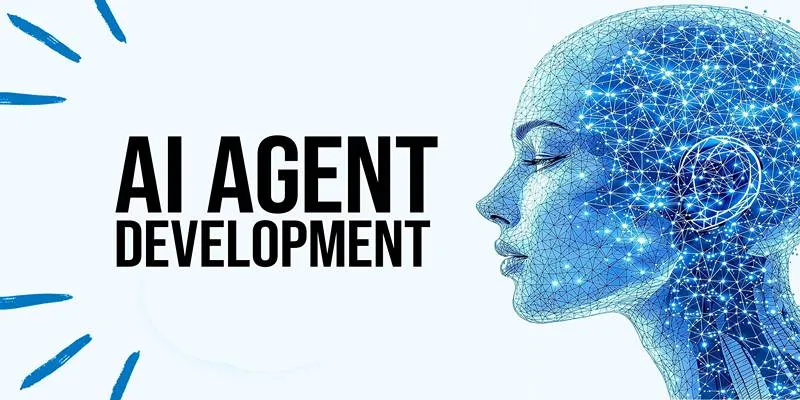Artificial Intelligence (AI) has significantly enhanced efficiency by automating tasks and enabling data-driven decision-making across various sectors. However, many organizations implement AI in fragmented ways, leading to inefficiencies and poorly planned strategies. Different fields employ customized AI tools to launch initiatives, which often strengthen isolated areas but rarely align with or support broader organizational objectives. This disjointed approach results in wasted time, unreliable AI outputs, and reduced overall efficiency.
AI coordination is a solution to these challenges. By linking models, tools, and processes, businesses can enhance efficiency, consistency, and growth through centralized AI functions. Integrating AI initiatives allows companies to maximize their AI investments, foster collaboration, and drive innovation. AI coordination supports the design, deployment, and upgrading of AI models, ensuring long-term benefits and adaptability to business needs.

Eliminating AI Silos to Improve Efficiency
Many organizations initiate AI projects within different departments, with each team implementing its solutions independently. For example, supply chain management might use predictive algorithms for shipping, HR analytics might employ machine learning, and marketing might use AI for customer targeting. Without collaboration, these systems lead to redundant processes, inaccurate data interpretations, and inefficiencies that impact overall performance. AI models trained on limited datasets lack cross-departmental insights, resulting in suboptimal outcomes and conflicting business strategies.
AI management unifies all AI systems under a cohesive framework to mitigate these issues. By integrating data flows, standardizing AI models, and promoting departmental collaboration, companies can streamline operations. This comprehensive approach reduces waste, optimizes resources, and encourages AI-driven cooperation.
Data sharing enhances AI models and improves understanding of human behavior, corporate transformation, and strategic decision-making. Unified AI efforts can minimize inefficiencies, costs, and missed data-driven insights, ensuring that AI adoption benefits the entire organization rather than isolated areas.
AI Governance in a Unified Strategy
The adoption of AI complicates organizational models and data management. Unmonitored AI systems can lead to ethical and performance-related issues. Many companies struggle to ensure that AI models are accurate, fair, and compliant with regulations. Weak governance can undermine trust and transparency, especially when departments deploy AI independently. Effective governance is crucial to address bias, security, and legal challenges in AI deployment.
AI automation enables centralized control, ensuring proper utilization, adherence to guidelines, and quality assurance. By establishing rules, monitoring data sources, and identifying biases, businesses can increase trust in AI systems. This disciplined approach results in effective, transparent, and responsible AI models aligned with business goals. Strong AI governance helps organizations build consumer trust, enhance brand reputation, and protect AI systems from data breaches and algorithm manipulation, ensuring sustainable AI-driven decision-making.
Scalable AI Infrastructure
Scalable infrastructure is essential for AI growth. Businesses often overlook how AI technology will perform across various activities or large data volumes when acquiring it. AI systems that function well in controlled environments may falter in real-world scenarios if they cannot scale, leading to errors and performance issues. AI models require constant updating, retraining, and optimization to maintain relevance. A flexible system capable of handling large data volumes and real-time computations is necessary.
AI management leverages cloud platforms, automated model deployment, and flexible computing resources to build scalable infrastructure. Businesses can expand AI tasks as needed using AI-as-a-service models. A well-planned AI strategy continuously retrains and optimizes models as data evolves.
Scalable AI allows organizations to make real-time decisions, intelligently automate tasks, and personalize customer experiences. By scaling AI, businesses secure their investments, ensuring effective performance regardless of growth or market changes. A flexible AI infrastructure enables companies to experiment with deep learning, reinforcement learning, and autonomous AI bots, keeping them at the forefront of innovation.
Data Integration and AI Procedures in One Place
Many organizations struggle to integrate their systems with data-driven AI. Teams using disparate data sources can inadvertently harm AI model performance. For instance, customer service might not provide the sales team with the necessary customer interaction data for AI-driven forecasting tools. Data silos lead to inaccurate predictions or missed insights, reducing the reliability of AI models and autonomous decision-making.
AI coordination offers a reliable, standardized data system across all departments. Connecting real-time data streams improves AI models’ predictive capabilities, automates decision-making, and enhances business intelligence. This holistic approach eliminates data barriers, reduces redundant efforts, and optimizes AI-driven insights, improving strategic planning and customer experience. By leveraging data lakes and real-time analytics, companies can enhance AI-powered innovations. Centralized data storage accelerates decision- making, refines forecasts, and automates departments, giving firms a competitive edge.

Business Impact of AI Orchestration
AI coordination enhances company revenue and customer satisfaction. AI-powered automation streamlines operations and reduces manual labor, boosting efficiency. Predictive analytics enables companies to anticipate market behavior and adapt accordingly. Personalized AI solutions increase sales, brand loyalty, and customer engagement. A unified AI approach helps firms reduce costs, increase revenue, and differentiate themselves in the market.
Beyond immediate operational benefits, AI automation prepares firms for future challenges and technologies. A cohesive AI strategy facilitates the deployment of innovative AI, automated decision-making, and AI-based security measures. AI coordination fosters idea exchange, problem-solving, and customer-centric focus across departments. By integrating AI operations, businesses achieve long-term success, generate new ideas, and maintain a competitive advantage. Data-driven business models, personalized user experiences, and AI-driven automation support business growth and profitability.
Conclusion
As AI rapidly evolves, companies must adopt it swiftly and strategically. To remain competitive, businesses must continuously update, refine, and integrate AI models. Organizations that fail to collaborate and expand their AI initiatives risk falling behind competitors who leverage AI coordination for success. Investing in research, technology, and skilled personnel is essential for staying ahead in the AI landscape.
Future-proof AI strategies require AI expertise, a flexible infrastructure, and a data-driven mindset. Companies prioritizing AI coordination can better adapt to market, technological, and consumer changes. AI-driven businesses can generate innovative ideas through intelligent decisions, hyper- personalization, and efficient operations. As AI transforms the business landscape, an effective coordination plan will enhance growth, efficiency, and market leadership.
 zfn9
zfn9























